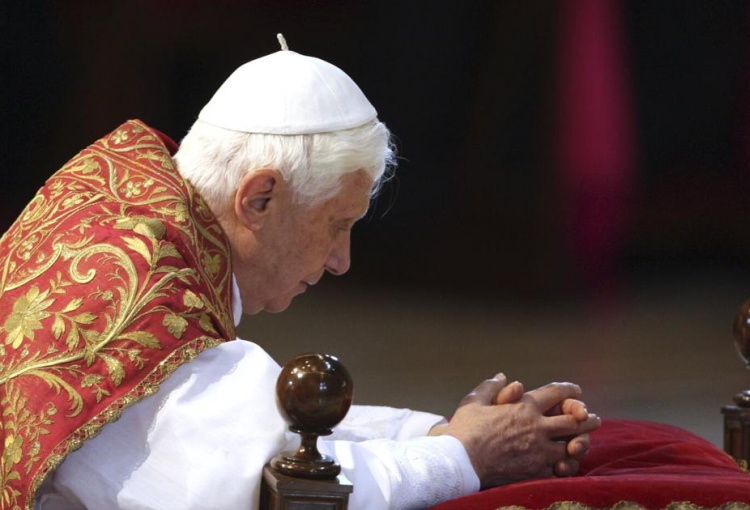Benedict offered great wisdom to those in public life
By Senator Rónán Mullen
In Christmas 2007, a few months after I was first elected to the Seanad, I bought two copies of Pope Benedict XVI’s book, Values in a Time of Upheaval.
One was for myself. The other was for another first-time senator who, I discovered from a few conversations, was clearly a reader and a thinker.
No harm for either of us, I thought, to learn more about what Pope Benedict was thinking and saying about the role of faith in modern society.
You can guess what happened. Some time after Christmas, I met my colleague and he wanted to know my opinions on the book. To my embarrassment, I had not yet read it. And on a subject like that, I wouldn’t dare to bluff.
Over the next few years, I tried to do better, and got to know Joseph Ratzinger and his thought a bit more, thanks in particular to his dialogues with German journalist Peter Seewald, who himself came back to his faith through these encounters with Ratzinger that led to four books.
In these – Salt of the Earth, God and the World, Light of the World and Benedict XVI, Last Testament – Pope Benedict is clarity itself in the way he answers questions about his life, experiences, beliefs and decisions.
These are books that you don’t have to be a highly-qualified philosopher or theologian to read and understand. Ratzinger was both a thinker and a teacher. He answered directly and made ideas easy to understand.
I saw him up close at several audiences which he gave to the International Catholic Legislators Network, an event in Frascati outside Rome which I attend most years.
Benedict did not make himself available for the universal handshake. Nobody resented that; he was an elderly, frail, prayerful, reserved and scholarly person in these encounters.
His sacrifice in accepting his election and putting himself out there as a globetrotter, was brought home to me by a story told to me by a friend of his.
While still a Cardinal, he returned exhausted from a long trip to the Americas, and told this friend that he would never cross the Atlantic again. Little did he know how wrong he was, and that many long trips were ahead of him as the Successor of St. Peter.
One of the greatest of those trips was his visit to Britain in September 2010.
It was there, in Westminster Hall, that he spoke about the relationship between faith and reason in identifying the ethical foundations for political decisions. “If the moral principles underpinning the democratic process are themselves determined by nothing more solid than social consensus, then the fragility of the process becomes all too evident – herein lies the real challenge for democracy,” he said.
The Pope told his audience, which included the then Prime Minister David Cameron and all his living predecessors, that distortions of religion like fundamentalism and sectarianism caused serious social problems, but that without the help of religion, reason itself fell prey to distortions and could get manipulated by ideology.
The misuse of reason gave rise to the slave trade and many other evils, he pointed out. Addressing his political audience, the Pope said “that the world of reason and the world of faith – the world of secular rationality and the world of religious belief – need one another and should not be afraid to enter into a profound and ongoing dialogue, for the good of our civilization.”
It was one of the great speeches of his pontificate and one that I hope will be read many times in the future.
Two days after he delivered it, having beatified the now St. John Henry Newman, and having brought a healing touch to old wounds, the German Pope left Britain.
“You have spoken to a nation of six million Catholics, but you have been heard by a nation of over 60 million citizens,” Cameron told him. “You have really challenged the whole country to sit up and think, and that can only be a good thing.”
Rónán Mullen has served as an Independent member of Seanad Éireann for the NUI Panel since 2007.

